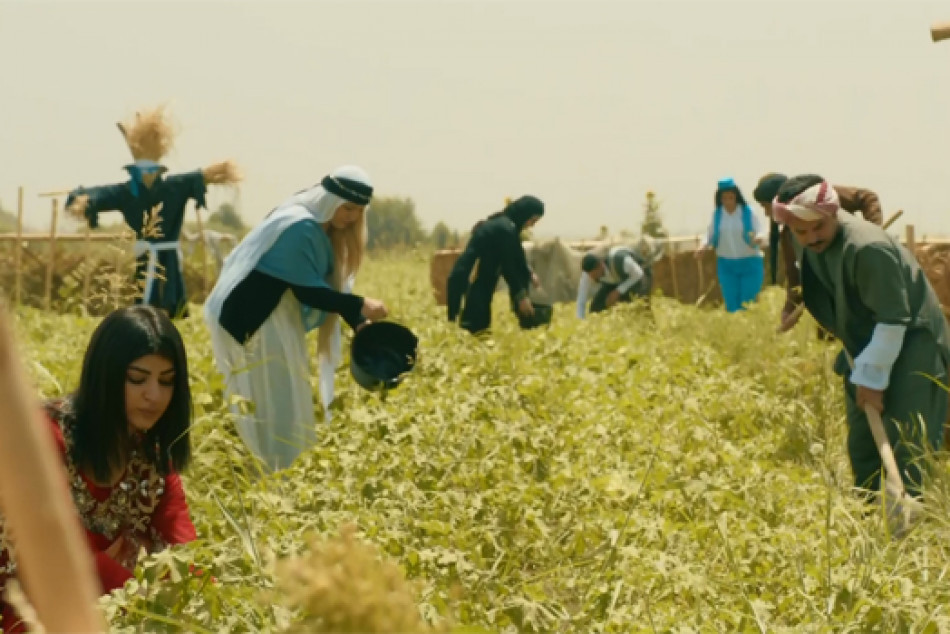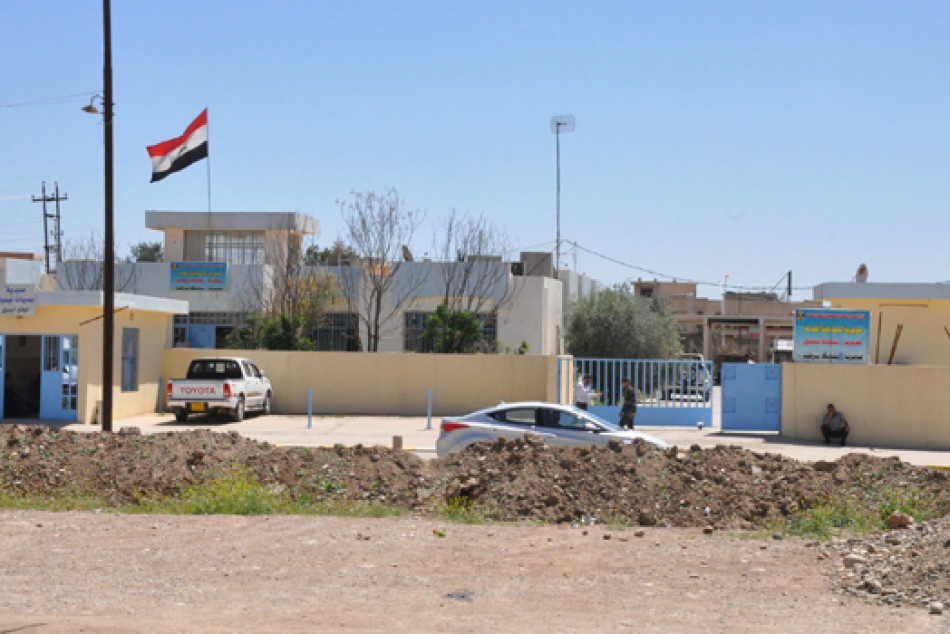Both the Shabak and Christian components have been in a fierce struggle and exchange of accusations of attempts of “demographic change” in the Ninewa Plains in which they represent overwhelming majority of population.
The solution does not seem to be quite easy, particularly as Iranian intervention through the Popular Mobilization Forces (PMF) and their attempts to register lands for a particular group is said to be complicating the situation and might take the conflict to a critical phase.
The origin of the issue is associated with the history of the area; however, the war against the Islamic State (IS), the displacement of the residents and the growing influence of the PMF, backed by Iran and the division of the Shabak and the Christians over different powers and regional blocs have further deepened the problem.
The conflict is taking place in Ninewa Plains, particularly in Hamdaniya, Bashik, Bartlla and the surrounding villages, which are populated by a mixed make-up of Christians, Shabak and a small percentage of of the Ezidi community.
The conflict enters a new phase
In the past few weeks the conflict entered a new phase when the Iraqi ministry of planning proposed a set of administrative changes in Ninewa plains, including the annexation of a number of Bartlla villages to Bashik sub-district and also the annexation of some of Hamdaniya villages to Kalak sub-district.
The decision was soon rejected by the Shabak community which has the support of the PMF and described the move as an attempt to establish a canton for the Christians.
The leadership of the Shabak Democratic Assembly, an umbrella organization representing Shabak political parties, issued a statement on May 25, 2019 in which they rejected what it called “a plot by some Christian political leaders and religious men to divide the Ninewa Plains under the procedures laid out by the ministry of planning.”
Shabak leaders consider the area as their ancestral, namely Namrud, Hamdaniya, Bashik, Bartlla and their associated villages.
Meanwhile, the Bait al-Nahrain party which represents the majority of the Christians in Ninewa Plains has expressed bewilderment over the Shabak’s rejection of the proposed administrative changes.
“The issue of the administrative reshuffles in Ninewa Plains has been welcomed by our party, as it will help our people to have their own land”, a statement by Bait al-Nahrain said, indicating that rejection of the government’s decision raises the concern of adopting “a political agenda aimed to evacuate the Ninewa plains from its indigenous residents.”
The problem does not end there
The disputes between the two components in the area is nothing new, and the Iraqi ministry of planning’s proposals is only a small part of the problem.
What happens now is the reluctance of the majority of Christians to return to their home areas, in return many Shabak families are coming back; furthermore, the distribution of plots of land over Shabak families and awarding them with occupancy certificates have further complicated the situation.
The Shabak Democratic Assembly in their statement say that “some Christian political leaders and clerics attempt to damage the reputation of the PMF through propagandas and exaggeration of small things that could happen everywhere in this world, but all they want is defaming the Shabak and the PMF.”
The Christians believe that there are attempts to change the demography in their areas; therefore they have notified the Iraqi government, the Kurdistan regional government and the United Nations.
Earlier in March 2019, the Christians in Ninewa Plains called for the suspension of work on a residential project in Bartlla, arguing that the project was an attempt to change the demography of the area.
The land which was allocated for the Sultan City project which includes 182 residential units belongs to the Christians, yet the majority of the units are being sold to Shabak families.
Jalal Butrus, head of Bartlla sub-district council said that the land allocated for the project “is originally an agricultural land owned by Christians.”
“The Christians do not have the power to stop the project but we are against demographic change”, he told KirkukNow.
What is on the horizon?
Wahida Yaqo, a Christian figure and former MP in the Kurdistan Region parliament says, “Currently, the overwhelming majority of Christians are living in displacement in the Kurdistan Region. Unless the security situation improves, these families will not return to their areas, and this would be an opportunity forsome groups to change the demography there.”
“Christians do not want to be under the authority of the PMF and the Iraqi government, and the government is seeking various means to give their lands and houses away to the Shabak”, she added.
However, the Shabak accuse the Christians of having the “Iran Phobia”, as the majority of the Shabak and Turkmen community in the area are Shiites and are accused of serving external agendas. They insist that history has proven that the Shabak have always called for unity and integrity.
The Shabak community is suggesting that Bashik sub-district should be turned into a district after annexing some of the villages predominantly inhabited by the Shabaks, but the Christians see the matter as an attempt of demographic change.
“The Iraqi government’s proposal is aimed to resolve Shabak-Christian disputes”, Ghazwn Dawudi, a representative of the Shabak minority in the Ninewa provincial council told KirkukNow.
The local administration has a say
The Ninewa administration is totally rejecting the government’s proposals, arguing that such administrative changes are within the powers of the provincial council.
Saydo Chato, head of the Ninewa provincial council said in a press conference at the end of May that “according to the provincial council’s law for provinces not incorporated into a region, the provincial council has the authority to hold a majority vote on any administrative changes in the administrative units within the province.”
The council has already assigned a committee to look into the issue of Ninewa Plains, which includes representatives of the area.
“The formation of the committee is to conduct broader discussions among the different components”, according to Saydo Chato.
In the meantime, the Bait al-Nahrain party has expressed concern over the provincial council’s rejection of the Iraqi government’s proposed changes and called for the local administration “to represent all the Iraqi components in Ninewa Plains.”
Karwan Haji has contributed to this follow-up





